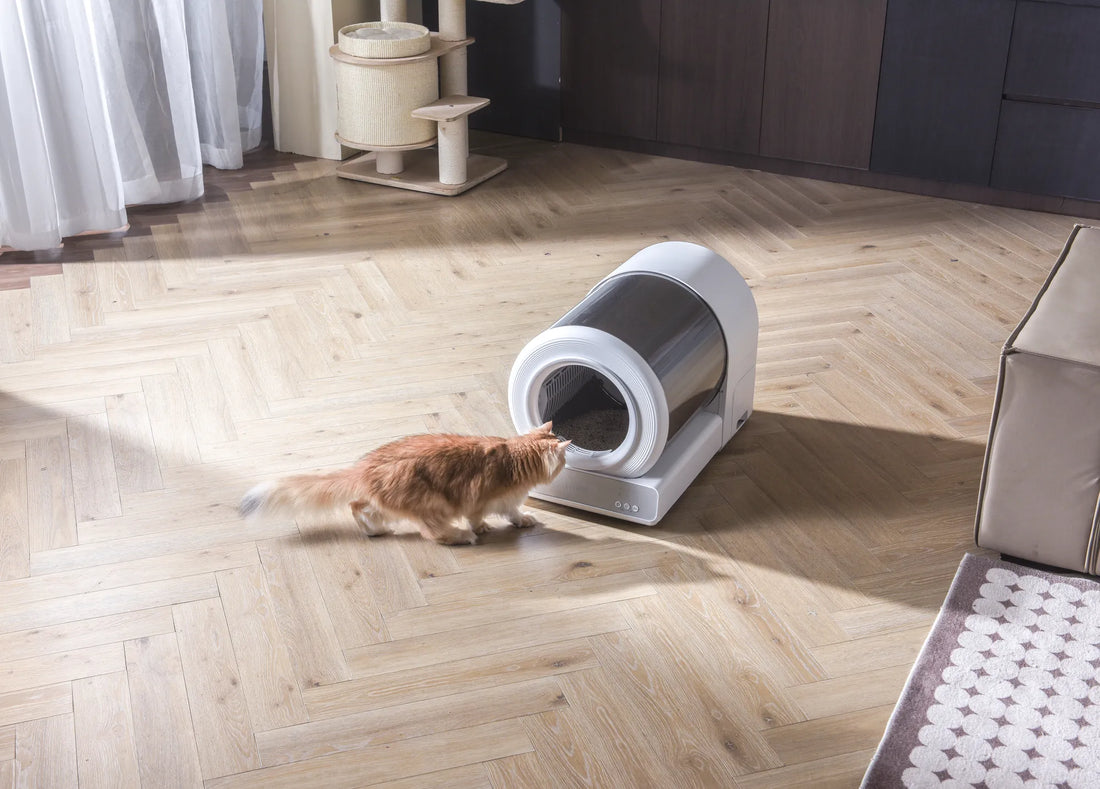If your cat keeps pooping next to the litter box, you're not alone. This frustrating behavior is a common issue among cat owners, but understanding the root causes can help you find a solution. Cats are creatures of habit, and any deviation from their normal routine can lead to stress or confusion, resulting in inappropriate elimination. Let's explore the possible reasons behind this behavior and how you can address it effectively.
Why Does My Cat Keep Pooping Next to the Litter Box?
There are several reasons why your cat might be avoiding the litter box and pooping next to it instead. Here are some of the most common causes:
1. Litter Box Issues
The litter box itself could be the problem. Cats are particular about their bathroom habits, and if the litter box doesn't meet their standards, they may avoid it. Factors to consider include:
- Cleanliness: Cats prefer a clean litter box. If it's not scooped regularly, they may refuse to use it.
- Size: The litter box might be too small for your cat, especially if it's a larger breed.
- Location: If the litter box is in a noisy or high-traffic area, your cat may feel uncomfortable using it.
- Type of Litter: Some cats are picky about the texture or scent of the litter.
2. Medical Problems
Inappropriate elimination can sometimes be a sign of an underlying health issue. Conditions such as urinary tract infections, constipation, or gastrointestinal problems can make it painful or difficult for your cat to use the litter box. If your cat's behavior changes suddenly, it's essential to consult a veterinarian to rule out medical causes.
3. Stress or Anxiety
Cats are sensitive to changes in their environment. Moving to a new home, introducing a new pet, or even rearranging furniture can cause stress, leading to inappropriate elimination. Additionally, conflicts with other pets in the household can make your cat feel unsafe using the litter box.
4. Territorial Marking
In multi-cat households, one cat may mark its territory by pooping outside the litter box. This behavior is more common in unneutered or unspayed cats but can occur in any cat feeling threatened or insecure.
How to Stop Your Cat from Pooping Next to the Litter Box
Once you've identified the potential cause, you can take steps to address the issue. Here are some strategies to help your cat return to using the litter box:
1. Maintain a Clean Litter Box
Ensure the litter box is scooped daily and thoroughly cleaned at least once a week. If you have multiple cats, provide one litter box per cat plus an extra to prevent competition.
2. Choose the Right Litter Box
Select a litter box that is large enough for your cat to move around comfortably. If your cat is older or has mobility issues, consider a box with lower sides for easier access.
3. Experiment with Different Types of Litter
If your cat seems to dislike the current litter, try switching to a different texture or scent. Unscented, clumping litter is often a good choice for picky cats.
4. Relocate the Litter Box
Place the litter box in a quiet, low-traffic area where your cat feels safe. Avoid placing it near loud appliances or in areas where other pets might ambush your cat.
5. Address Medical Concerns
If you suspect a health issue, schedule a visit to the vet. Treating the underlying problem can often resolve the inappropriate elimination behavior.
6. Reduce Stress
Create a calm and stable environment for your cat. Provide plenty of hiding spots, vertical spaces, and enrichment activities to help reduce anxiety. If you've recently introduced a new pet, give your cat time to adjust and ensure they have their own space.
7. Use Positive Reinforcement
Reward your cat with treats or praise when they use the litter box correctly. Avoid punishing your cat for accidents, as this can increase stress and worsen the problem.
When to Seek Professional Help
If you've tried all the above solutions and your cat continues to poop next to the litter box, it may be time to consult a professional. A veterinarian or a certified animal behaviorist can provide additional insights and tailored advice to address the issue.
Remember, patience is key when dealing with behavioral problems in cats. With the right approach, you can help your feline friend return to their proper bathroom habits and maintain a harmonious household.
Understanding why your cat keeps pooping next to the litter box is the first step toward solving the problem. By addressing the underlying causes and making adjustments to their environment, you can help your cat feel more comfortable and confident. Don't let this common issue strain your bond with your furry companion—take action today and restore peace to your home.













